Home>Articles>How To Store Eggs Long Term Without Refrigeration


Articles
How To Store Eggs Long Term Without Refrigeration
Modified: February 26, 2024
Learn the best techniques for storing eggs without refrigeration in this informative article. Find out how to keep eggs fresh and safe for long-term storage.
(Many of the links in this article redirect to a specific reviewed product. Your purchase of these products through affiliate links helps to generate commission for Storables.com, at no extra cost. Learn more)
Introduction
Welcome to our guide on how to store eggs long-term without refrigeration. When it comes to preserving food, refrigeration is often the go-to method. However, there may be situations where access to electricity or refrigeration is limited or not available at all. In these cases, it’s important to have alternative methods for storing perishable items like eggs.
While eggs are typically stored in the refrigerator to extend their shelf life, there are various techniques that can be used to store eggs for an extended period without the need for refrigeration. These methods have been used for centuries, allowing people to have a constant supply of eggs even in times when refrigeration was not common.
In this article, we will explore different techniques and methods for safely storing eggs without the need for refrigeration. We will discuss the factors to consider before choosing a method, as well as the steps and precautions involved in each technique.
It’s important to note that while these methods can significantly prolong the shelf life of eggs, they do have their limitations. Storing eggs without refrigeration can affect the taste, texture, and quality of the eggs to some extent. Therefore, it’s essential to understand the pros and cons of each method and choose the one that best suits your needs.
Whether you’re an avid homesteader, a prepper, or simply looking to reduce your reliance on refrigeration, this guide will provide you with valuable information on how to store eggs long-term without refrigeration. Let’s dive in and explore the fascinating world of egg preservation!
Key Takeaways:
- Embrace traditional preservation methods to store eggs long-term without refrigeration, ensuring a reliable supply for camping trips, power outages, or self-sufficiency while understanding the trade-offs in taste and texture.
- Explore diverse techniques such as water glassing, pickling, and dry storage to extend the shelf life of eggs, providing practical alternatives to refrigeration and fostering a deeper connection with food heritage.
Why Store Eggs without Refrigeration?
Refrigeration is undoubtedly a convenient and effective method for preserving food, including eggs. However, there are several reasons why you may want to consider storing eggs without refrigeration:
- Limited access to electricity: In certain situations, such as camping trips, rural areas with unreliable power supply, or during emergencies or natural disasters, access to electricity and refrigeration may be limited. Knowing how to store eggs long-term without refrigeration can be a valuable skill in these circumstances.
- Reduce energy consumption: Refrigerators are one of the largest energy-consuming appliances in households. By exploring alternative storage methods for eggs, you can minimize your energy consumption and contribute to a more sustainable lifestyle.
- Preserve eggs during power outages: Power outages can occur unexpectedly, causing perishable items in the refrigerator to spoil. Knowing how to store eggs without refrigeration ensures that you can still safely consume eggs during such situations, minimizing food waste.
- Self-sufficiency and homesteading: Many people who embrace a self-sufficient lifestyle, such as homesteaders or off-grid enthusiasts, prefer to store their own eggs without relying on electricity or refrigeration. Mastering the art of egg preservation allows them to be more self-reliant and maintain a consistent egg supply.
- Traditional preservation techniques: Storing eggs without refrigeration has been practiced for centuries in various cultures. Exploring these traditional methods not only offers an insight into our ancestors’ ingenuity but also allows us to learn valuable skills and connect with our food heritage.
By understanding the reasons behind storing eggs without refrigeration, you can make an informed decision about applying these techniques based on your specific circumstances and values. In the following sections, we will delve into the various methods for long-term egg storage that can be employed in the absence of refrigeration.
Factors to Consider Before Storing Eggs Long Term
Before embarking on storing eggs long-term without refrigeration, it’s important to take into account several factors. These factors will help you determine the most suitable method for preserving your eggs and ensure their safety for consumption. Here are some key considerations:
- Egg freshness: The freshness of the eggs plays a crucial role in determining their shelf life. Fresh eggs have a thicker egg white and a firm yolk, which are indicators of their quality. Therefore, it’s recommended to use the freshest eggs possible for long-term storage to maximize their viability.
- Egg quality: Inspect the eggs before storing them to ensure they are free from any cracks or damage. Cracked eggs should be used immediately instead of storing them long-term.
- Cleaning the eggs: Before storing eggs, it’s essential to clean them properly. However, avoid washing the eggs with water as it can remove their natural protective coating. Instead, gently wipe off any visible dirt or debris with a dry cloth or brush.
- Storage conditions: The environment in which the eggs are stored is crucial for their longevity. Factors such as temperature, humidity, and light exposure can impact their quality. Choose a storage location that is cool, dark, and well-ventilated to help extend the shelf life of the eggs.
- Method suitability: Consider the pros and cons of each method of storing eggs without refrigeration and assess which method aligns best with your circumstances and preferences. Some methods may be more suitable for short-term storage, while others may be better for long-term preservation.
- Availability of resources: Take into account the availability of resources required for each method. Some techniques may require specific materials or ingredients, and it’s important to ensure that you have access to them before proceeding.
- Rotation system: Implementing a rotation system is essential to ensure that you consume the oldest stored eggs first. This helps to maintain the freshness and quality of the eggs and prevents any from being forgotten or wasted.
By considering these factors, you can make informed decisions about which method to choose and the optimal conditions for storing your eggs long-term without refrigeration. Now that we’ve explored these considerations, let’s delve into the common methods that can be utilized for storing eggs in the absence of refrigeration.
Common Methods for Storing Eggs without Refrigeration
When it comes to storing eggs without the use of refrigeration, there are several tried-and-true methods that have been used for generations. These methods leverage different preservation techniques to extend the shelf life of eggs. Let’s explore some of the most common methods:
- Mineral Oil: Coating eggs with a thin layer of mineral oil creates a protective barrier that helps prevent oxygen loss and moisture evaporation, thereby slowing down the aging process. This method requires clean, uncracked eggs and food-grade mineral oil.
- Water Glassing: Water glassing, also known as sodium silicate preservation, involves submerging eggs in a solution of water glass (sodium silicate) to create an alkaline environment that inhibits bacterial growth. This method requires fresh, unwashed eggs and a solution of water glass.
- Dry Storage: Dry storage involves storing eggs in a cool, dry place with moderate humidity. This method works by allowing the eggs to naturally dehydrate over time, which helps prolong their shelf life. It’s important to rotate the eggs regularly to ensure freshness.
- Freezing Eggs: Freezing eggs can be a convenient method for long-term storage. However, it’s crucial to separate the yolks and whites before freezing to avoid textural changes. Freezing egg yolks requires adding a small amount of salt or sugar as a stabilizer.
- Pickling Eggs: Pickling eggs involves preserving them in a vinegar-based brine solution infused with herbs and spices. The acidic environment created by the brine helps inhibit bacterial growth and extends the shelf life of the eggs. Pickled eggs can be stored at room temperature or in the refrigerator.
- Preserving Eggs with Salt: Coating eggs in a layer of salt creates a desiccating effect that helps preserve their freshness. This method requires a thick layer of salt around the eggs and storing them in a cool, dry place.
- Using Lime Water: Soaking eggs in lime water, a solution made with calcium hydroxide, creates an alkaline environment that helps preserve the eggs. Lime water can be reused multiple times and is effective for both short-term and long-term storage.
- Storing Eggs in Sand: Burying eggs in clean sand helps to insulate them from temperature fluctuations and prevent moisture loss. Sand storage is suitable for short-term preservation, usually extending the shelf life for a few weeks.
- Using Silicate Gel: Placing eggs in a container with silica gel packets helps absorb excess moisture, making it an effective method for preventing spoilage. Silica gel packets are commonly found in food packaging or can be purchased separately.
Each method has its own pros and cons, and the suitability may vary depending on the available resources, preferences, and the desired duration of storage. In the following sections, we will explore each method in more detail, providing step-by-step instructions and tips for successful egg preservation without refrigeration.
Method 1: Using Mineral Oil
Using mineral oil is a popular method for long-term egg storage without refrigeration. This technique involves coating the eggs with a thin layer of mineral oil, which creates a protective barrier on the eggshell to inhibit moisture evaporation and oxygen penetration. Here’s how you can use mineral oil to preserve eggs:
- Start with clean, uncracked eggs. Ensure that the eggs are free from dirt, debris, or any visible contamination.
- Prepare a food-grade mineral oil. It’s important to use a mineral oil that is safe for consumption. Avoid using mineral oil that contains additives or fragrances.
- Gently brush or wipe each egg with a thin layer of mineral oil. Make sure to cover the entire surface of the eggshell, including the top and bottom.
- Place the coated eggs in a cool, dry storage container. You can use egg cartons, straw-filled baskets, or similar containers that provide cushioning and allow air circulation.
- Store the container in a cool, dark location with moderate humidity. Avoid exposure to direct sunlight or extreme temperature fluctuations.
- Rotate the eggs regularly. It’s good practice to turn the eggs once a week to prevent the yolk from settling on one side and maintain its quality.
- When you’re ready to use the eggs, simply rinse off the mineral oil before cooking or refrigerating them.
Using mineral oil to store eggs long-term can significantly extend their shelf life. The protective barrier created by the mineral oil helps to seal the pores of the eggshell, preventing the exchange of gases and moisture. It’s important to note that eggs stored with mineral oil may have a slightly altered texture and taste compared to refrigerated eggs.
Remember to always use fresh, clean eggs, and inspect them periodically for any signs of spoilage or offensive odors.
This method is a great option for individuals who desire to store eggs for an extended period without relying on refrigeration. By following these steps and taking proper precautions, you can successfully utilize mineral oil to preserve your eggs and have a steady supply on hand.
Method 2: Water Glassing
Water glassing, also known as sodium silicate preservation, is a traditional method for storing eggs long-term without refrigeration. This technique involves submerging fresh, unwashed eggs in a solution of water glass (sodium silicate) to create an alkaline environment that inhibits bacterial growth and prolongs the shelf life of the eggs. Here’s how you can use the water glassing method:
- Start with fresh, unwashed eggs. It’s important not to wash the eggs as this would remove the natural protective coating.
- Prepare a solution of water glass. Follow the instructions on the water glass packaging to create the appropriate concentration of the solution.
- Place the unwashed eggs carefully in a clean storage container, such as a crock or glass jar.
- Pour the water glass solution over the eggs, ensuring that they are fully submerged. Make sure the eggs are completely covered by the solution.
- Seal the container with a tight-fitting lid to prevent air and moisture from entering. This helps maintain the alkaline environment created by the water glass solution.
- Store the container in a cool, dark place away from direct sunlight and extreme temperatures.
- Periodically check the eggs for any signs of spoilage or bacterial growth. Remove any eggs that appear off or have an unusual odor.
- When you’re ready to use the eggs, rinse them thoroughly with water before cooking or consuming.
Water glassing provides a simple and effective method for preserving eggs without refrigeration. The alkaline environment created by the water glass solution helps prevent bacterial growth and maintains the freshness of the eggs for an extended period. With proper storage and regular inspection, eggs stored using water glassing can typically last for several months.
It’s important to note that water glassing may affect the texture of the eggs, causing the whites to become slightly thicker. However, the eggs can still be used in a variety of dishes, including baking, scrambling, or omelets.
By practicing the water glassing method, you can have a reliable supply of eggs even without refrigeration. It’s a traditional preservation technique that has stood the test of time, allowing you to enjoy fresh eggs for an extended period.
Method 3: Dry Storage
Dry storage is a straightforward and convenient method for storing eggs without refrigeration. This method involves storing eggs in a cool, dry place with moderate humidity, allowing the eggs to naturally dehydrate over time. Here’s how you can use the dry storage method:
- Start with clean, uncracked eggs. Ensure that the eggs are free from any visible dirt or debris.
- Choose a storage location that is cool, dark, and well-ventilated. Ideal temperature ranges for dry storage are between 45°F (7°C) and 65°F (18°C).
- Avoid storing eggs near strong odors or foods with strong flavors, as eggs can readily absorb odors.
- Place the eggs in a clean and breathable container. You can use egg cartons, straw-filled baskets, or similar containers that allow for air circulation.
- Avoid stacking the eggs on top of each other to prevent cracking or damage.
- Store the container of eggs in the chosen location, ensuring that it is away from direct sunlight and extreme temperature fluctuations.
- Periodically check the eggs for any signs of spoilage, such as odor, mold, or discoloration. Remove any eggs that appear off or have visible defects.
- Rotate the eggs regularly to ensure even distribution of air and to maintain their freshness. Using a rotation system helps ensure that you consume the oldest eggs first.
- When you’re ready to use the eggs, gently wash them before cooking or preparing. Avoid using water that is colder than the egg temperature to minimize the risk of bacteria entering through the shell pores.
Dry storage is suitable for short to medium-term egg storage, typically extending the shelf life for several weeks. The natural dehydration process helps preserve the eggs by reducing moisture content and limiting microbial growth. However, it’s important to note that the eggs may experience some quality changes, such as a slight increase in viscosity of the egg white over time.
This method is ideal for individuals who prefer a simple and low-maintenance approach to egg storage without the need for special solutions or coatings. By following these steps and practicing regular inspection and rotation, you can successfully store eggs through dry storage and have a readily available supply of fresh eggs without refrigeration.
Method 4: Freezing Eggs
Freezing eggs is a convenient method for long-term storage without the need for refrigeration. While freezing changes the texture of eggs, they can still be used in various recipes. Here’s how you can freeze eggs:
- Start by cracking the eggs into a bowl and whisking them lightly until the yolks and whites are well combined.
- If desired, you can add a pinch of salt or sugar to the beaten eggs to help stabilize the texture during freezing.
- To freeze whole eggs, transfer the beaten eggs into freezer-safe containers or ice cube trays. Leave some headspace in the containers or compartments as the eggs will expand when frozen.
- If you prefer to freeze only egg whites or yolks, separate them and store them in separate containers or compartments.
- Seal the containers or cover the ice cube trays tightly with plastic wrap or lids to prevent freezer burn and odor absorption.
- Label the containers or trays with the date and the number of eggs or egg parts stored.
- Place the containers or trays in the freezer and freeze until solid.
- When you’re ready to use the frozen eggs, thaw them in the refrigerator overnight or for a few hours.
- After thawing, use the eggs immediately in your desired recipes. Frozen eggs are best used for baking, cooking, and scrambling rather than as a standalone dish like fried or boiled eggs.
It’s important to note that freezing eggs may alter their texture. Frozen eggs tend to become slightly thicker and may have a slightly different consistency when cooked. However, they remain safe to eat and can still be incorporated into a variety of dishes.
By freezing eggs, you can extend their shelf life for several months, providing a convenient and flexible option for long-term storage without refrigeration. Whether you’re anticipating a surplus of eggs or want to have a backup supply on hand, freezing eggs is a practical solution to make the most of your fresh eggs.
To store eggs long term without refrigeration, coat them in a thin layer of mineral oil to seal the pores and prevent air and bacteria from entering. This can help extend their shelf life.
Method 5: Pickling Eggs
Pickling eggs is a popular method for preserving eggs without refrigeration, while adding a tangy and flavorful twist. Pickled eggs can be stored at room temperature and enjoyed as a tasty snack or added to salads, sandwiches, and more. Here’s how you can pickle eggs:
- Start by hard-boiling the eggs. Place the eggs in a pot and cover them with water. Bring the water to a boil, then reduce the heat and let the eggs simmer for about 10-12 minutes.
- Remove the eggs from the heat and transfer them to an ice bath to cool and stop the cooking process. After cooling, carefully peel the eggs and set them aside.
- Prepare the pickling solution. In a saucepan, combine equal parts vinegar and water. Add your desired pickling spices such as black peppercorns, garlic cloves, dill, or chili flakes.
- Bring the pickling solution to a boil and let it simmer for a few minutes to infuse the flavors.
- Place the peeled hard-boiled eggs in sterilized jars, leaving some space at the top.
- Pour the hot pickling solution over the eggs, ensuring that they are completely submerged. Use a clean utensil to remove any air bubbles.
- Seal the jars tightly with sterilized lids and let them cool to room temperature.
- Store the pickled eggs in a cool, dark place for at least 2-3 weeks to allow the flavors to develop. The longer they sit, the more tangy and flavorful they become.
- Once pickled, the eggs can be stored at room temperature for several months. However, refrigerating them after opening is recommended for maintaining quality.
Pickling eggs creates an acidic environment that inhibits bacterial growth and preserves their freshness. The pickling solution infuses the eggs with a delicious tangy flavor, making them a versatile ingredient for various dishes.
Remember to handle pickled eggs with clean utensils to avoid contamination, and discard any eggs that show signs of spoilage, such as mold or off odors.
By pickling eggs, you can enjoy a unique and flavorful twist on traditional egg preservation. Whether enjoyed as a snack or incorporated into your favorite recipes, pickled eggs provide a delicious and shelf-stable option without the need for refrigeration.
Read more: How To Store Eggs Long Term
Method 6: Preserving Eggs with Salt
Preserving eggs with salt is a traditional method that has been used for centuries to store eggs long-term without refrigeration. Coating eggs with salt creates a desiccating effect, helping to preserve their freshness. Here’s how you can preserve eggs with salt:
- Start with fresh, uncracked eggs. Ensure that the eggs are clean and free from any visible dirt or debris.
- Choose a storage container that is clean, dry, and non-reactive. You can use a wooden box, a basket lined with straw, or a jar filled with salt.
- Pour a thick layer of salt into the bottom of the container, creating a bed for the eggs.
- Place the eggs gently on top of the layer of salt, making sure they are not touching each other.
- Carefully cover the eggs with more salt, ensuring that they are completely surrounded and coated with salt.
- Close the container tightly, sealing it to prevent moisture and air from entering.
- Store the container in a cool, dry place with moderate humidity. Avoid exposure to direct sunlight or extreme temperature fluctuations.
- Periodically check the eggs for any signs of spoilage or deterioration. Remove any eggs that show signs of mold, off odors, or visible defects.
- When you’re ready to use the preserved eggs, gently rinse them with water to remove the excess salt before cooking or consuming.
Preserving eggs with salt creates a desiccating environment that helps to draw out moisture from the eggs, preventing bacterial growth and prolonging their shelf life. The salt coating acts as a protective layer, preserving the eggs’ freshness and quality.
It’s important to note that eggs preserved with salt may have a slightly altered texture. The egg white may become thicker, and the yolks may be slightly denser. However, they can still be used in a variety of dishes, such as baking, scrambling, and cooking.
By preserving eggs with salt, you can enjoy their freshness for an extended period without the need for refrigeration. It’s a simple and time-tested method that allows you to have a reliable supply of eggs even in situations where refrigeration is not available.
Method 7: Using Lime Water
Using lime water is a traditional method for preserving eggs without refrigeration. By soaking eggs in a solution made with calcium hydroxide (lime water), an alkaline environment is created that helps preserve the eggs. Lime water preservation is effective for both short-term and long-term storage. Here’s how you can use lime water to preserve eggs:
- Start by preparing the lime water solution. In a non-reactive container, mix 1 part food-grade calcium hydroxide (slaked lime) with 10 parts water. Stir well to ensure the lime is fully dissolved.
- Place the eggs carefully in a clean jar or container, making sure they are not cracked or damaged.
- Pour enough lime water solution over the eggs to completely submerge them. Ensure that all eggs are fully covered and there is no air trapped inside.
- Seal the jar or container with a tight-fitting lid to prevent air from entering.
- Store the container in a cool, dark place with moderate humidity. Avoid exposure to direct sunlight or extreme temperature fluctuations.
- Allow the eggs to soak in the lime water solution for at least 24 hours or up to several weeks, depending on your preference.
- When you’re ready to consume the preserved eggs, carefully remove them from the lime water solution and rinse them thoroughly with water to remove any excess lime.
Lime water preservation creates an alkaline environment that helps maintain the freshness and quality of eggs. The calcium hydroxide in the solution neutralizes the pH and inhibits bacterial growth, extending the shelf life of the eggs.
It’s important to note that preserved eggs may have a slightly altered texture, particularly the whites. The egg whites may become denser or have a different consistency compared to fresh eggs. However, they can still be used in a variety of recipes, such as baking, scrambling, or omelets.
By using lime water, you can preserve eggs without the need for refrigeration, allowing for extended storage and a reliable supply of eggs. This traditional preservation method offers an effective way to maintain the freshness of eggs in environments where refrigeration is not available or desired.
Method 8: Storing Eggs in Sand
Storing eggs in sand is an age-old method for long-term egg storage without refrigeration. Burying the eggs in clean sand provides insulation and helps maintain a stable temperature, preventing spoilage. Here’s how you can store eggs in sand:
- Start with clean, uncracked eggs. Ensure that the eggs are free from any visible dirt or debris.
- Choose a container that is suitable for holding the eggs and sand. It should allow for good air circulation and be big enough to accommodate the number of eggs you wish to store.
- Fill the container with clean, dry sand to create a layer that is a few inches deep.
- Gently place the eggs in the sand, making sure they are evenly spaced and not touching each other.
- Carefully cover the eggs with more sand, ensuring that they are completely surrounded and buried in the sand.
- Store the container in a cool, dry place away from direct sunlight and extreme temperature fluctuations.
- Periodically check the eggs for any signs of spoilage or deterioration. Remove any eggs that show signs of mold, off odors, or visible defects.
- When you’re ready to use the stored eggs, carefully brush off the excess sand and gently wash them before cooking or consuming.
Storing eggs in sand provides insulation that helps maintain a constant temperature, minimizing temperature fluctuations that can affect the eggs’ quality. The sand acts as a protective layer, preventing excessive moisture loss and protecting the eggs from external elements.
It’s important to note that storing eggs in sand is more suitable for short-term storage, typically extending the shelf life for a few weeks. The exact shelf life will depend on the temperature and humidity conditions of the storage environment.
By using the sand storage method, you can extend the freshness of eggs without the need for refrigeration. This method is particularly useful in situations where other preservation techniques may not be available or practical.
Method 9: Using Silicate Gel
Using silicate gel is an effective method for preserving eggs without refrigeration. Silicate gel packets contain tiny beads that can absorb excess moisture, helping to prevent spoilage and extend the shelf life of the eggs. Here’s how you can use silicate gel to store eggs:
- Start with clean, uncracked eggs. Ensure that the eggs are free from any visible dirt or debris.
- Obtain a sufficient amount of food-grade silicate gel packets. These packets can often be found in food packaging or can be purchased separately.
- Place the eggs in a clean, breathable container. You can use egg cartons or a similar container that allows for air circulation.
- Open the silicate gel packets and place them alongside the eggs in the container. Make sure the packets are not directly touching the eggs.
- Seal the container tightly to ensure that air does not enter or escape. This helps maintain a controlled environment for the eggs.
- Store the container in a cool, dry place away from direct sunlight and extreme temperature fluctuations.
- Periodically check the eggs for any signs of spoilage or deterioration. Remove any eggs that show signs of mold, off odors, or visible defects.
- When you’re ready to use the eggs, rinse them thoroughly with water before cooking or consuming.
Using silicate gel to store eggs helps to absorb excess moisture, which can contribute to spoilage. By maintaining a dry environment, the gel packets help to prolong the freshness and quality of the eggs.
It’s important to note that the silicate gel packets are not meant to be consumed, so they should be kept away from the eggs and disposed of properly. Always handle the packets with clean hands to avoid any contamination.
By utilizing silicate gel packets, you can effectively store eggs without refrigeration and have them remain fresh for a longer duration. This method is particularly useful in environments with high humidity or when other preservation techniques are not feasible.
Read more: How To Store Eggs Without Refrigeration
Precautions and Tips for Storing Eggs Long-Term
When storing eggs long-term without refrigeration, it’s important to take certain precautions and follow specific guidelines to ensure the safety and quality of the stored eggs. Here are some precautions and tips to keep in mind:
- Use fresh, clean eggs: Start with fresh, uncracked eggs. Ensure that the eggs are clean and free from any visible dirt or debris. Avoid using eggs that are past their expiration date.
- Inspect the eggs regularly: Periodically check the stored eggs for any signs of spoilage, such as mold, off odors, or visible defects. Remove any eggs that show signs of spoilage or deterioration.
- Implement a rotation system: To ensure freshness and prevent any eggs from being forgotten, implement a rotation system. Consume the oldest stored eggs first and replace them with fresh eggs.
- Choose suitable storage containers: Use clean, breathable containers for storing the eggs. Egg cartons, straw-filled baskets, or containers with good air circulation are ideal options.
- Maintain proper storage conditions: Store the eggs in a cool, dark place with moderate humidity. Avoid exposure to direct sunlight or extreme temperature fluctuations, as these can affect the quality of the eggs.
- Label and date the stored eggs: Properly label and date the stored eggs or containers. This helps you keep track of the freshness and ensures that you consume them within a reasonable time frame.
- Practice hygienic handling: Always handle the eggs with clean hands and utensils to minimize the risk of contamination. Rinse the eggs thoroughly before cooking or consuming, especially when using preservation methods that involve coatings or solutions.
- Observe any changes in texture or taste: Understand that eggs stored long-term without refrigeration may experience slight changes in texture or taste. Be prepared for these differences and adapt your cooking and recipes accordingly.
- Follow method-specific guidelines: Different methods of storing eggs without refrigeration may have specific steps and requirements. Follow the guidelines for each method carefully to achieve the best results.
It’s essential to note that while these methods can prolong the shelf life of eggs, they do have their limitations. The quality and taste of the eggs may be slightly affected compared to refrigerated eggs. Therefore, it’s important to understand the trade-offs and choose the method that best suits your needs and preferences.
To ensure optimal results, always use common sense and trust your senses. If an egg looks or smells off, it’s better to discard it. Stay vigilant and enjoy the benefits of long-term egg storage without refrigeration while maintaining food safety.
Conclusion
Storing eggs long-term without refrigeration is not only possible but also a practice that has been utilized for centuries. By employing various preservation methods, you can extend the shelf life of eggs and have a reliable supply even when refrigeration is limited or not available. Throughout this guide, we have explored different techniques for storing eggs without refrigeration, including using mineral oil, water glassing, dry storage, freezing, pickling, preserving with salt, lime water preservation, storing in sand, and using silicate gel. Each method offers its own unique benefits and considerations.
Before storing eggs long-term, it’s important to consider factors such as egg freshness, quality, storage conditions, method suitability, availability of resources, and implementing a rotation system. These considerations ensure that the stored eggs remain safe and of good quality for an extended period.
Whether you’re a homesteader, an outdoor enthusiast, or simply looking for ways to reduce dependence on refrigeration, the methods outlined in this guide provide practical alternatives. By following the specific instructions for each method and taking necessary precautions, you can successfully store eggs without compromising their safety or taste.
It’s crucial to remember that while these methods offer extended shelf life, they do come with slight alterations in taste and texture compared to refrigerated eggs. However, given their convenience and effectiveness, these preservation techniques are valuable skills to have in your culinary repertoire.
Experiment with different methods to find the ones that best suit your needs and preferences. Remember to regularly inspect the stored eggs and discard any that show signs of spoilage or deterioration. By implementing proper storage practices and following hygiene principles, you can enjoy the benefits of long-term egg storage without refrigeration.
Whether you’re preparing for a camping trip, experiencing power outages, or simply seeking self-sufficiency, learning how to store eggs long-term without refrigeration empowers you to have a stable supply of this versatile and nutritious food item. So, embrace these preservation methods, enjoy the satisfaction of preserving your own eggs, and savor the flavors of your favorite egg-based dishes at any time!
Frequently Asked Questions about How To Store Eggs Long Term Without Refrigeration
Was this page helpful?
At Storables.com, we guarantee accurate and reliable information. Our content, validated by Expert Board Contributors, is crafted following stringent Editorial Policies. We're committed to providing you with well-researched, expert-backed insights for all your informational needs.
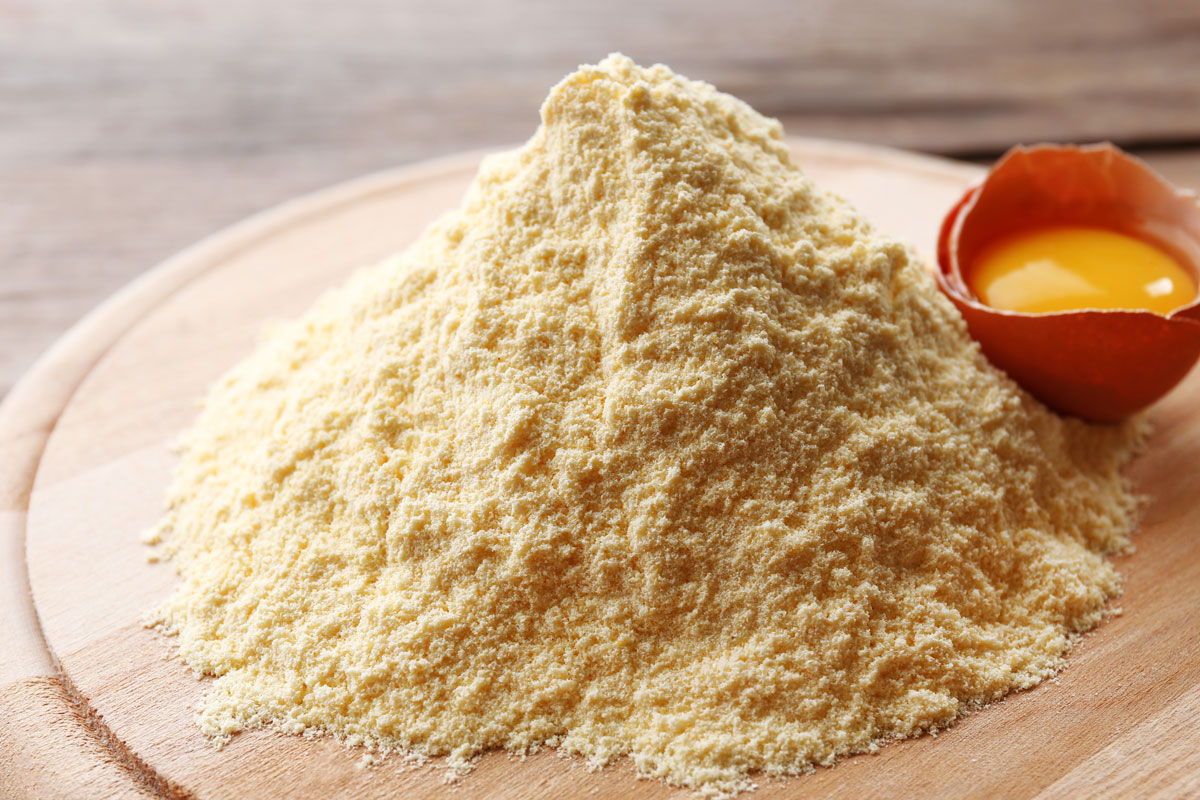

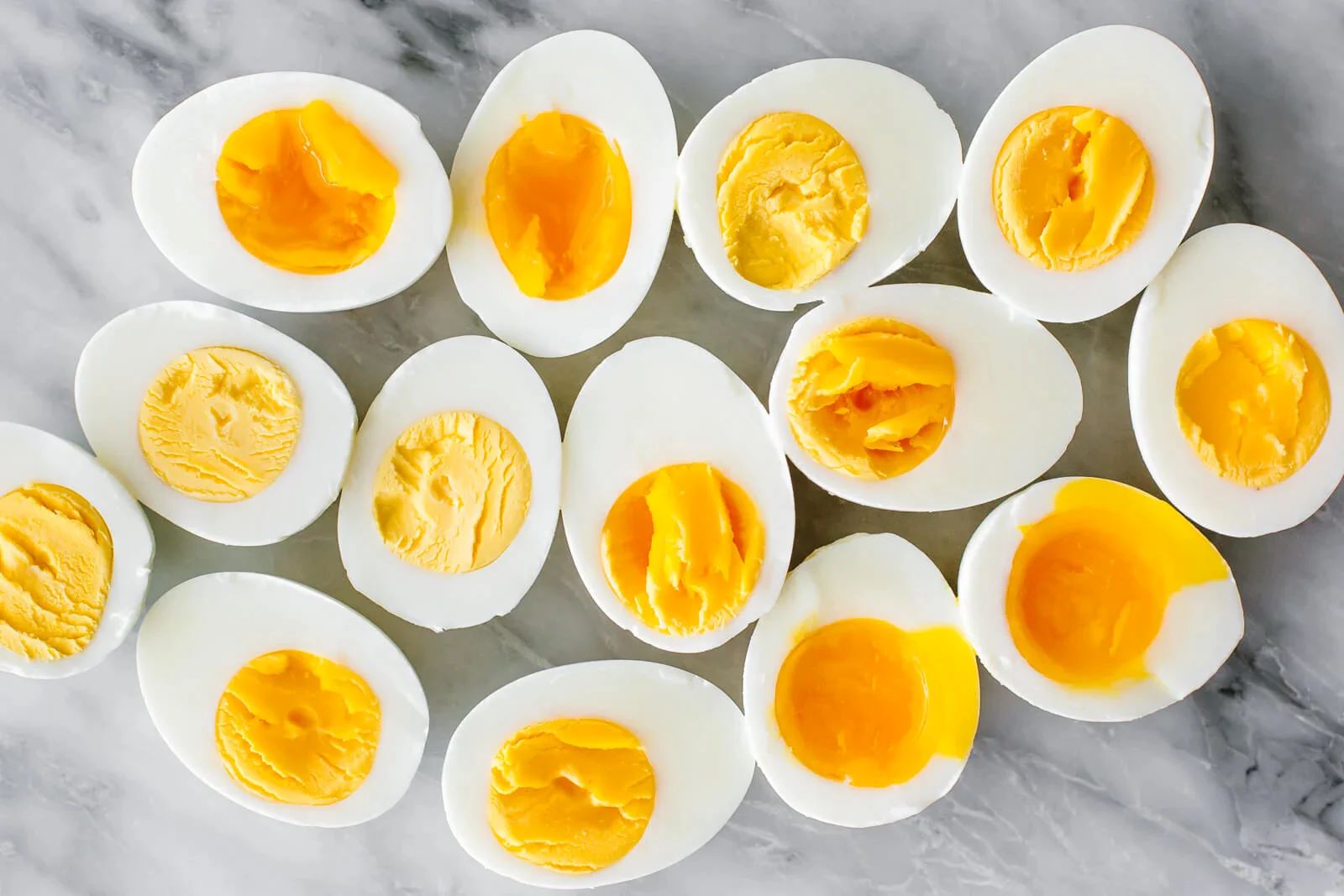
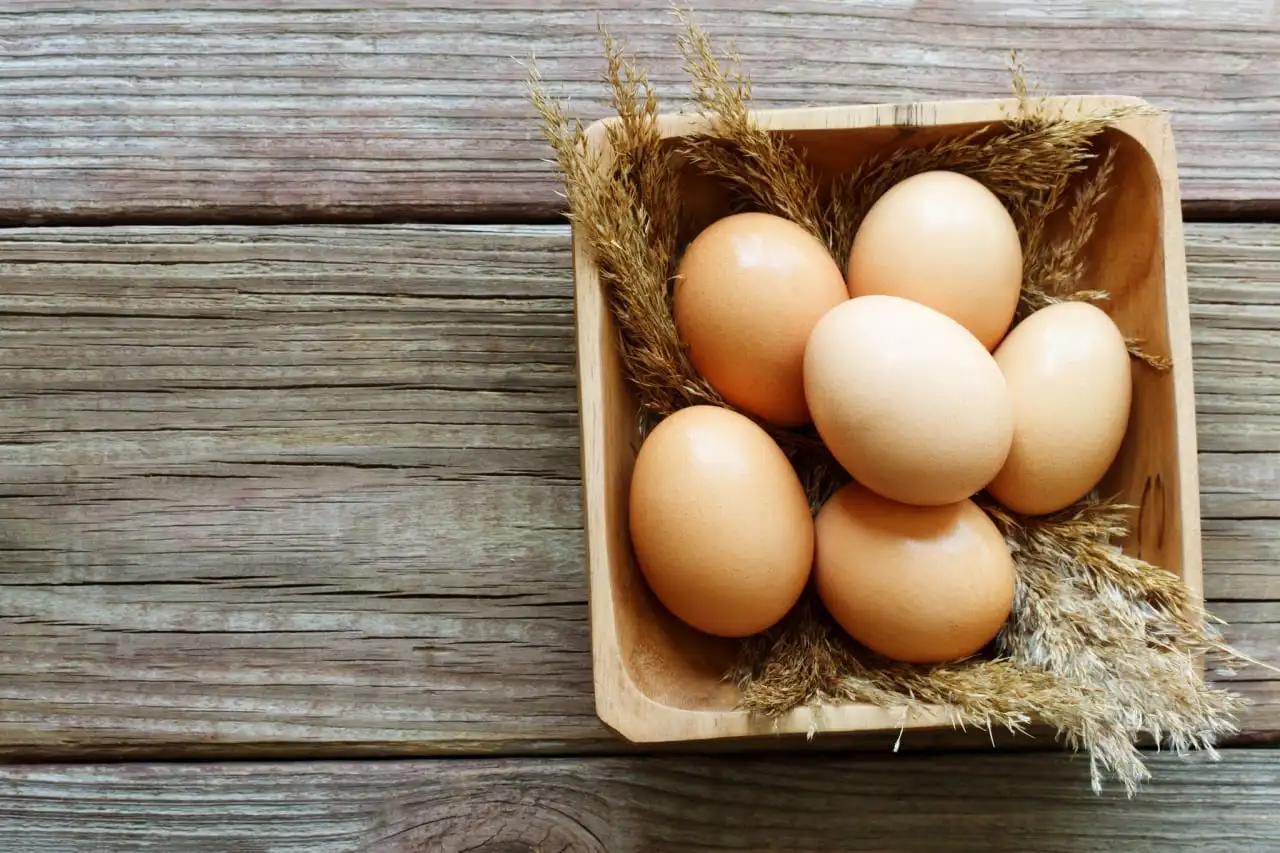


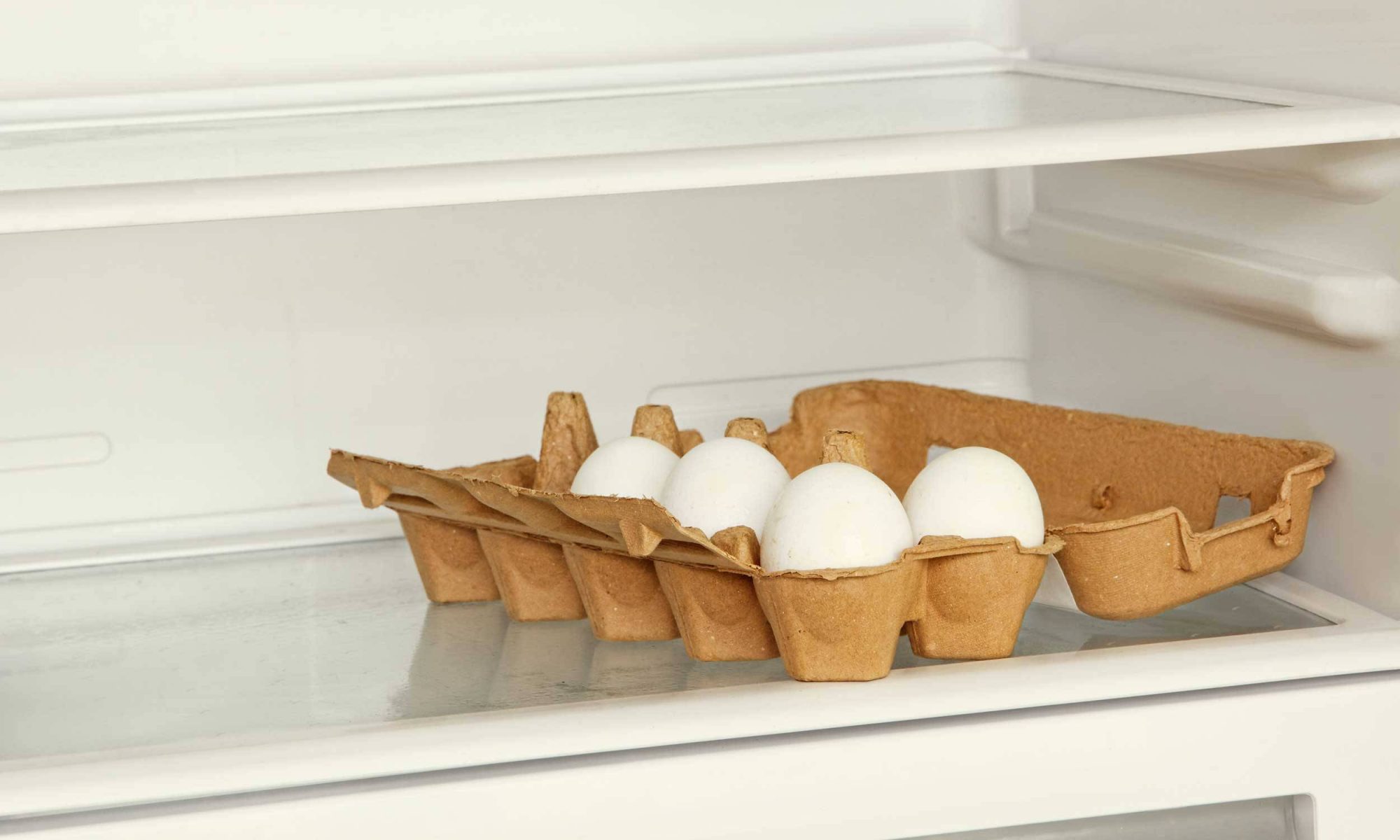




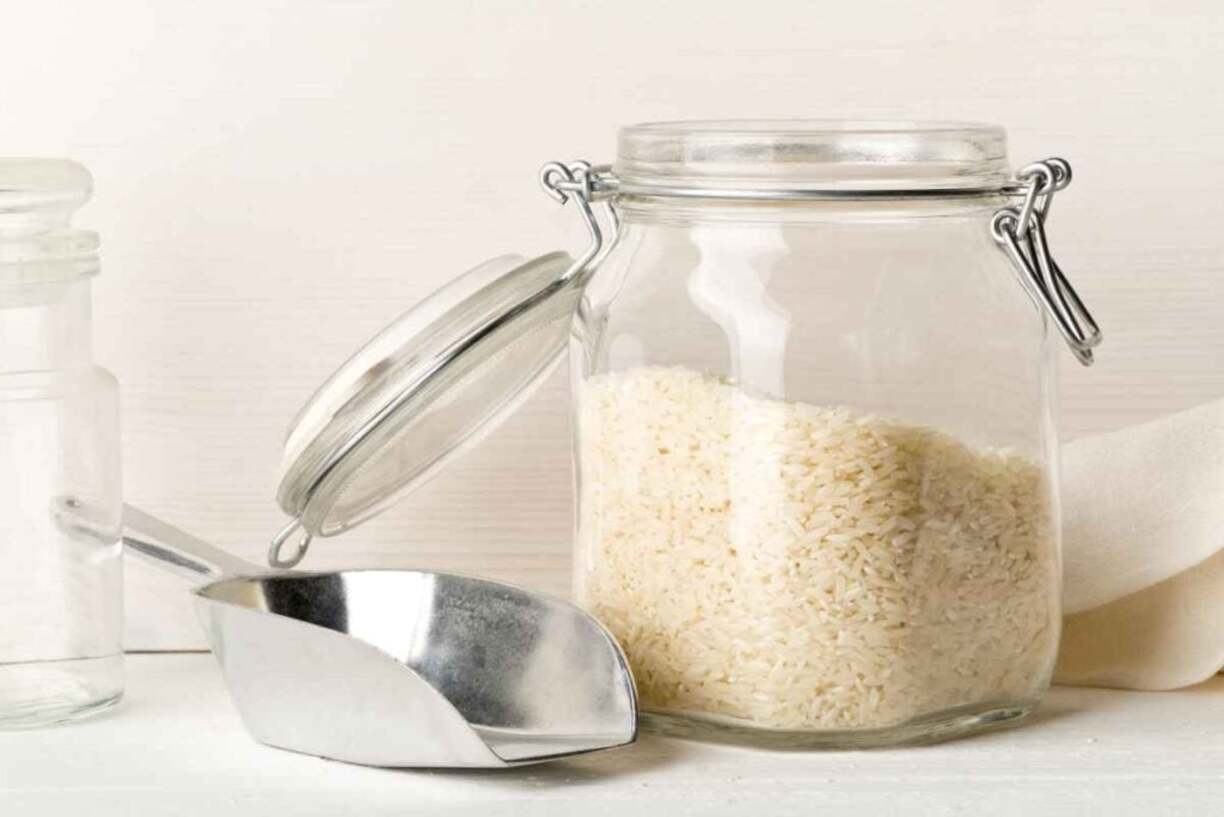

0 thoughts on “How To Store Eggs Long Term Without Refrigeration”